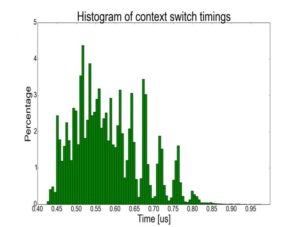
Thomas Sterling, Director, Center for Research in Extreme Scale Technologies (CREST) at Indiana University
This year at SC16 in Salt Lake City, Dr. Thomas Sterling from Indiana University will present: Runtime Systems Software for Future HPC: Opportunity or Distraction?
As one of the SC16 Invited Talks, this presentation will provide a comprehensive review of driving challenges, strategies, examples of existing runtime systems, and experiences. One important consideration is the possible future role of advances in computer architecture to accelerate the likely mechanisms embodied within typical runtimes. The talk will conclude with suggestions of future paths and work to advance this possible strategy.
Invited speaker Dr. Thomas Sterling holds the position of Professor of Informatics and Computing at the Indiana University (IU) School of Informatics and Computing Department of Intelligent Systems Engineering (ISE) as well as serves as Director of the IU Center for Research in Extreme Scale Technologies (CREST). In 1997, he was a Gordon Bell Prize recipient.
Abstract

Time required to perform a context switch between lightweight threads. Chart courtesy of Daniel Kogler, IU.
Increasing sophistication of application program domains combined with expanding scale and complexity of HPC system structures is driving innovation in computing to address sources of performance degradation. Efficiency and scalability of parallel resource operation (now peaking at 10 million cores) demand that challenges of starvation, latency, overhead, and contention in supercomputing be resolved.
Asynchronous multi-tasking through runtime system software is of increasing interest and is being explored within the US and internationally to complement more conventional approaches in pursuit of effective exascale computing. In principle, runtime systems may exploit compute time information about application state and system usage for dynamic and adaptive introspective control of resource management and task scheduling. The intent is to achieve superior resource utilization, load balancing, data migration and affinity, and parallelism discovery.
Other motivations include reducing programmer burden and portability across systems of different types, scales, and generations. However, advanced scalable runtime systems are experimental and impose additional problems such as increased system software complexity, added overheads, and uncertainty about programming interfaces, support for legacy codes, and workload interoperability. Further, early results suggest that not all applications will benefit significantly through runtime support, with instances of performance reduction observed.
This presentation will provide a comprehensive review of driving challenges, strategies, examples of existing runtime systems, and experiences. One important consideration is the possible future role of advances in computer architecture to accelerate the likely mechanisms embodied within typical runtimes. The talk will conclude with suggestions of future paths and work to advance this possible strategy.
SC16 has published a number of other presentation previews including:
- SC16 Invited Talk Spotlight: Dr. Thomas N. Theis Presents “Beyond Exascale: Emerging Devices and Architectures for Computing”
- SC16 Invited Talk Spotlight: Dr. Sadasivan Shankar Presents “Co-design 3.0 – Configurable Extreme Computing, Leveraging Moore’s Law for Real Applications”
- SC16 Invited Talk Spotlight: Author Sharon Bertsch McGrayne Presents “Bias: from Overt to Unconscious and What Research Suggests Can Be Done”
- SC16 Invited Talk Spotlight: Dr. Masaki Satoh Presents “A Super High-Resolution Global Atmospheric Simulation by the Non-Hydrostatic Icosahedral Atmospheric Model”
- SC16 Invited Talk Spotlight: Dr. Maria Klawe Presents “Diversity and Inclusion in Supercomputing”
See our complete coverage of SC16
Registration is now open for SC16, which takes place Nov. 13-18 in Salt Lake City.




